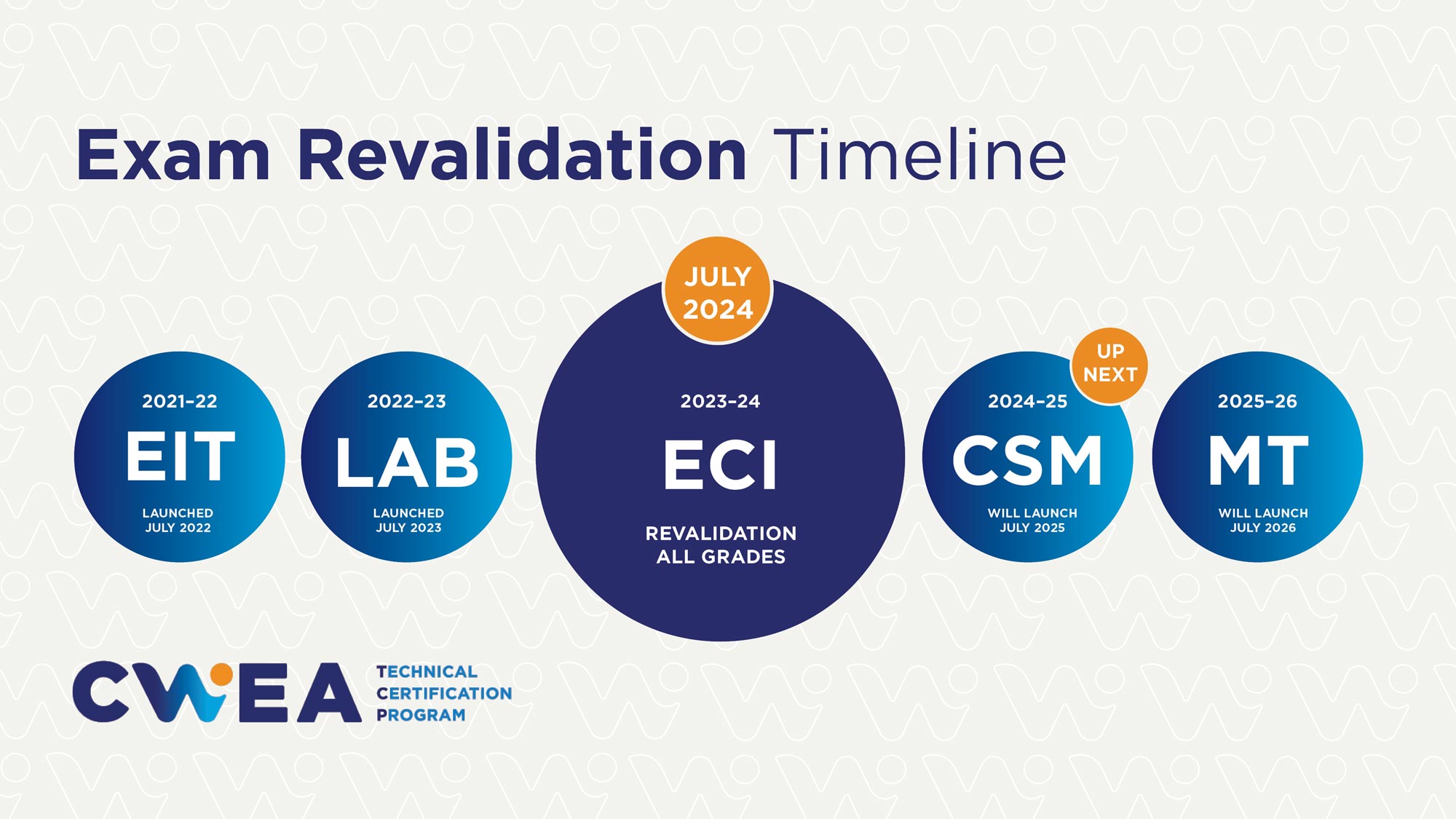
The Environmental Compliance Inspector (ECI) certification program has undergone a comprehensive update, spearheaded by a dedicated team of Subject Matter Experts (SMEs). This robust review and revalidation of the certification program aimed to enhance the standards and ensure that the exams accurately reflect the knowledge and skills required in the field of environmental compliance.
The revalidation process, which spanned from July 2023 to June 2024, involved collaboration from a panel of more than 25 subject matter experts across the state of California.
These experts played a pivotal role in the revalidation process, which included the following steps:
To validate the inclusion of exam content, a group of 156 certified environmental compliance professionals contributed their expertise. Collectively, this group represented an impressive 2,275 years of experience in the field. By involving professionals with extensive knowledge and experience, CWEA ensured that the certification exams accurately assess the competence and proficiency required for environmental compliance inspectors. This validation process further strengthens the credibility and relevance of CWEA’s Technical Certification Program.
As part of the revalidation process, the CWEA ECI certification program has established new Minimum Qualifications to refine and enhance the exams’ focus and accuracy and ensuring a higher degree of competency among certified professionals.
Notably, the new minimum qualifications have reduced the number of years required to qualify for Grade 2, facilitating career progression for individuals with demonstrated experience. They also increase the ability to substitute education for required experience, in recognition of the value of formal education and advanced degrees in the field of environmental compliance. Those seeking the Grade 4 certification now have the option to meet the supervisory experience requirement by completing 60 hours of education in management and training. This will allow professionals to advance their careers in the face of limited supervisory positions.
Additionally, the degree requirement has been clarified and broadened to accommodate diverse educational backgrounds. It is important to note that there are still no education or experience requirements to qualify for Grade 1, ensuring accessibility for entry-level professionals.
Certification holds significant advantages for both professionals and employers. For professionals, it can facilitate employment opportunities and job security, potentially lead to increased compensation, enhance professional skills, and ensure compliance with employer requirements. By becoming certified, professionals demonstrate their commitment to excellence and ongoing professional development.
Employers, on the other hand, benefit from certified staff, which can boost public confidence, limit liability, and contribute to informed employment and promotion decisions. CWEA’s certification program’s commitment to rigorous standards ensures that professionals and employers alike can reap these valuable benefits.
The completion of the revalidation process for the CWEA’s ECI certification program marks a significant milestone in enhancing the program’s standards and relevance.